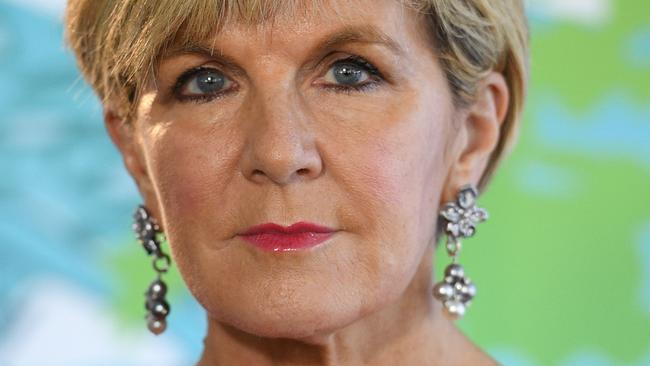‘A bad omen’: Chinese state media challenge foreign interference threat
China has labelled government warnings over foreign interference in Australian universities ‘a bad omen’.

Chinese commentators labelled government warnings over foreign interference in Australian universities “a bad omen” as Foreign Minister Julie Bishop added her voice to the debate.
Last week departmental secretary Frances Adamson urged Australian universities to resist foreign interference and warned Beijing to expect greater scrutiny of its activities abroad as its influence expands.
In recent months, the Chinese government has been accused of becoming involved in cases where international students have campaigned against individual lecturers for using material seen as offensive or out of line with Beijing’s view of the world.
Further, Australian academics have reported they believe some international students fear speaking up in class, while Chinese student groups at universities are explicitly “supervised” by government diplomats.
Australian National University chancellor Gareth Evans said universities needed to give international students reassurance “that they can operate in a spy-free environment”.
Ms Bishop yesterday said students and academics at Australian universities should abide by liberal democratic values of free speech.
“We don’t want to see freedom of speech curbed in any way involving foreign students or foreign academics,” she said.
“This country prides itself on its values of openness and upholding freedom of speech. Australia is an open liberal democracy we welcome students and visitors to our shores but people come to Australia because of our values, openness and freedom so we want to ensure everybody has the advantage of expressing their views whether they are at university or whether they are visitor.”
In an article published on Phoenix New Media on Friday, commentator Liang Haoming said recent discourse in Australia over China was “a bad omen”.
“(If) ‘China threat’ theories prevail in the governments of Australia and New Zealand and among their academics, it will eventually damage the interest of the two countries and their people,” he wrote. Mr Liang said the government’s “right wing tendencies” were harming Sino-Australia relations and Australia needed to “avoid being taken as a chess piece for US in its containment of China”.
An article by Global Times Australia correspondent Li Feng questioned the interpretation of Ms Adamson’s comments considering she did not explicitly accuse the Chinese government of interference.
The report quoted an unnamed University of Canberra professor who said the idea the Chinese government was infiltrating universities was foolish and suggested Australian media were only making an issue of the matter in order to gain attention.
Another article originally published late last month by China’s Global Times and republished on popular website Sina was titled “is Australia safe for Chinese international students?”
The article raised instances where racist posters targeting Chinese students were put up at Australian universities and the recent baseball bat attack at the Australian National University which left several Chinese students in hospital.
The debate about the impact of the Chinese government on Australian universities has opened up the divide between Australia’s security community and the country’s free trade proponents.
Giovanni Di Lieto who lectures international trade law at Monash University wrote that Ms Bishop’s “tough stance against Chinese interference in Australian universities” appears to move the country away from “the dualist strategy and toward the American choice”.
Opposition foreign affairs spokeswoman Penny Wong backed Ms Bishop.
“Our acceptance of China as a global power doesn’t involve us stepping away from defending our sovereignty,” Senator Wong said.
“Freedom of speech, the contest of ideas is an important democratic practice; it’s an important aspect of Australian democracy and Australian sovereignty.”
Senator Wong said it was in Australia’s interests to get a better understanding of a more “assertive” China.
“Our contemporary discussion of China is similarly vulnerable ... to infection with undertones of race and alienation,” she said.
China’s hawkish Global Times fired back at Ms Bishop overnight, labelling her as a “harsh critic” of the superpower and said it was time for Chinese students re-consider studying in Australia.
“The Australian reaction sounds more like the latest variant of the China threat theory or even an excuse for racial discrimination,” the author Su Tan wrote.
“If this arrogant country continues to apply the China threat theory, it’s probably time for prospective Chinese students to rethink studying in Australia.”
The author of the comment piece defended Chinese students who complained about “offensive material” in Australian universities.
“Every Chinese person would take the same attitude when engaging in discussions that harm China’s sovereignty.”


